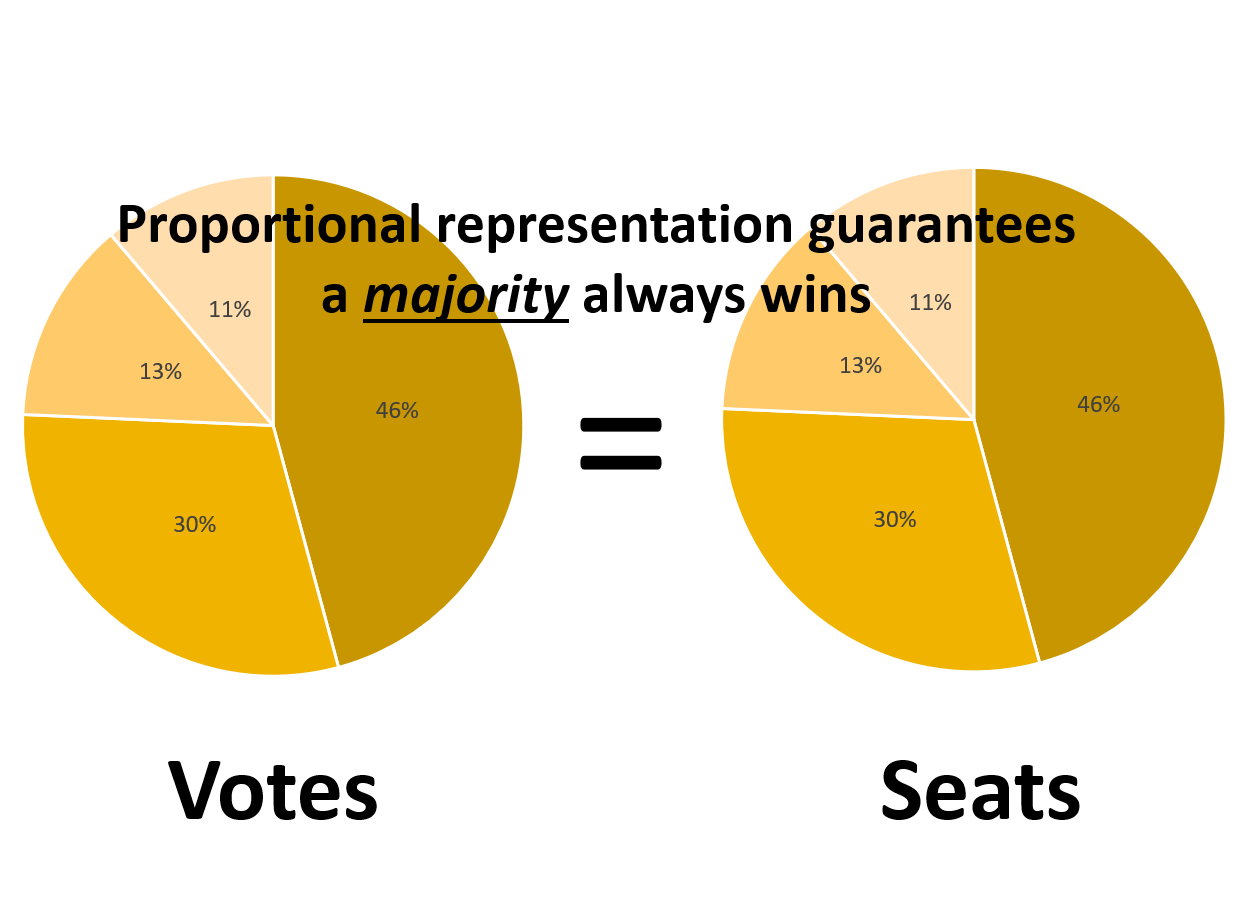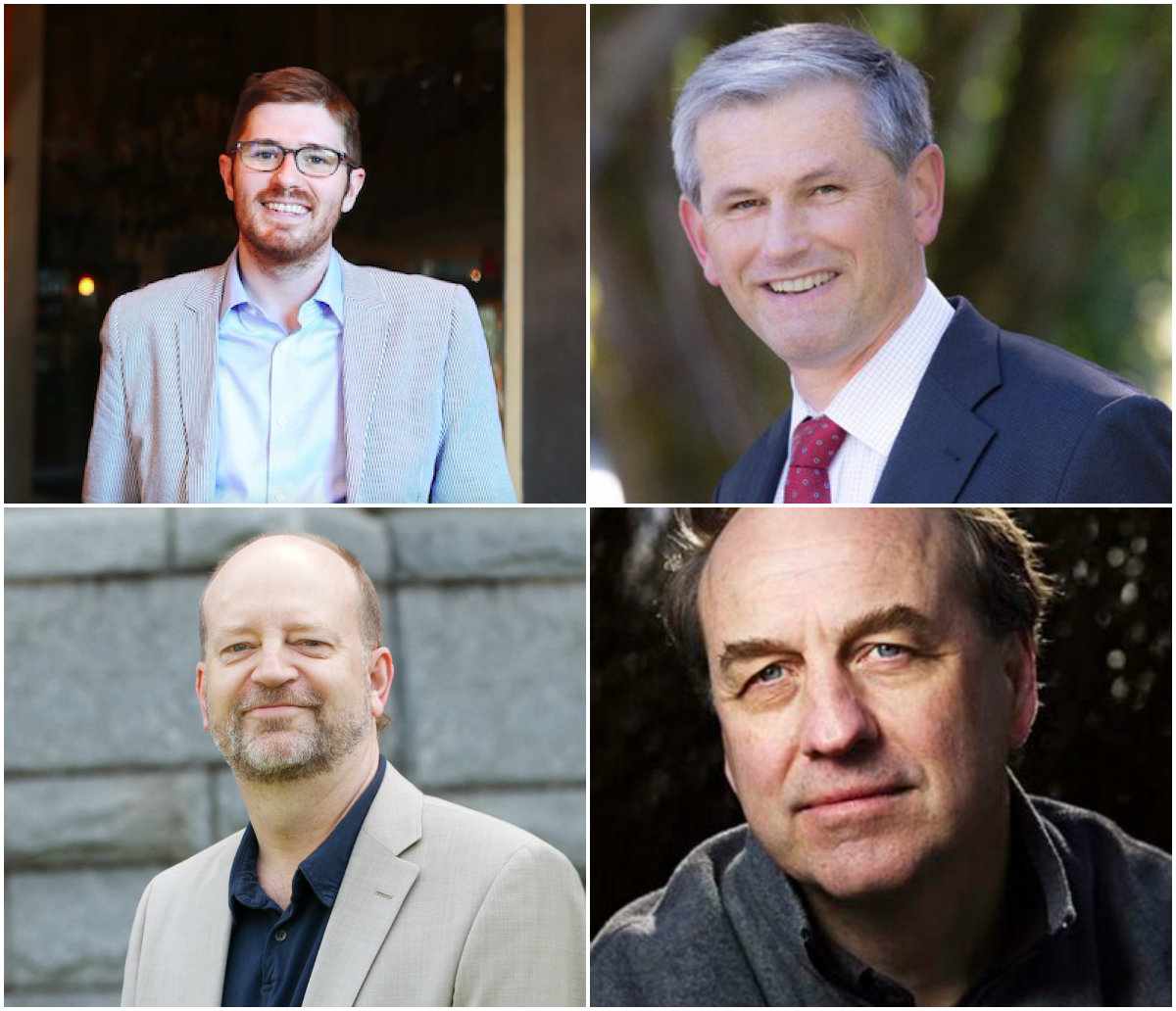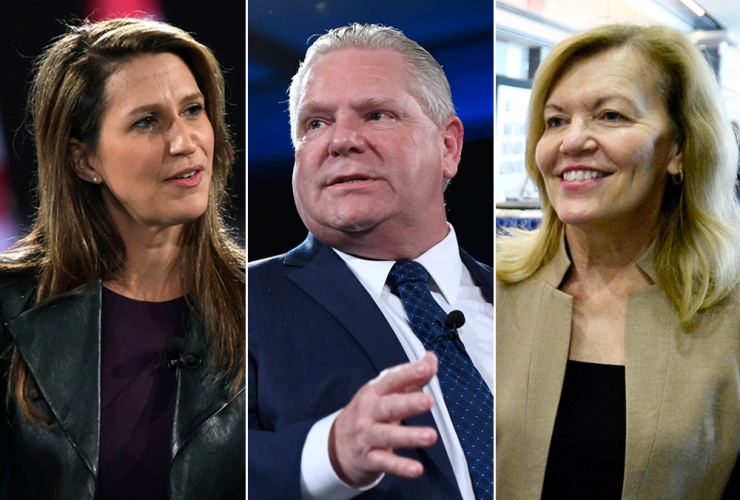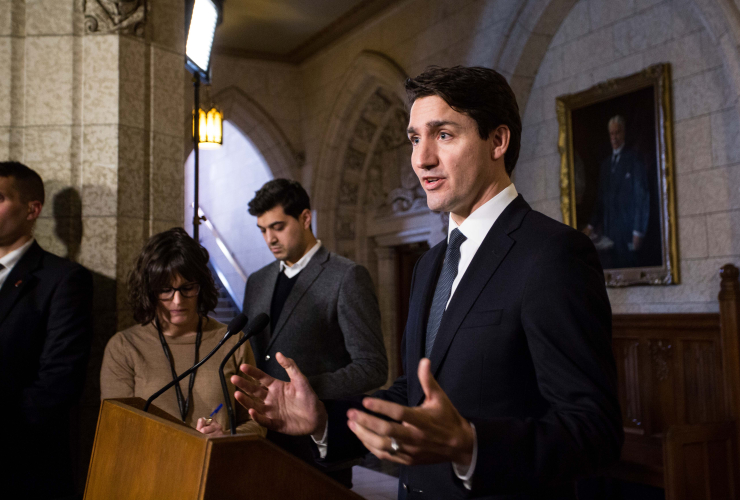British Columbians have a choice this fall.
We can embrace the system of distributing votes called Proportional Representation (PR) that allows almost every vote to count, that encourages cooperation among politicians, that prompts them to work together and enlarges the diversity of opinions, that almost completely eliminates "wasted" votes, and that eliminates wild swings in policy from one elected government to the next.
Or we can stick with the outmoded winner-takes-all system we have now, called First-Past-the-Post, where one vote can win a seat, where a majority of voters end up without representation, where hyper-partisanship is rampant, and where politics, as BC Liberal leadership candidate Todd Stone called it, becomes a "blood sport".
In these turbulent times in the early twenty-first century, we need PR.
Why we need change
Andrew Wilkinson had no sooner assumed the mantle of the BC Liberal Party when he burst forth with the intemperate language that is the hallmark of politicians enmeshed in the first-past-the-post (FPTP) system, where stakes are high, and a single vote can give a candidate total victory.

Speaking to cheering supporters after his slim win over outsider rival Dianne Watts, Wilkinson – by contrast to Watts a long-time party insider -- urged delegates to recall the NDP being “wiped out, in this room” in 2013 by his predecessor, Christy Clark. He vowed to go up against the NDP with everything he had, hoping to “make their skin crawl”, and promising to hound the Green/NDP leaders and “drive the wedge between them and make sure they are more and more uncomfortable with each other...”
Two days after the victory, speaking to CKNW’s Jill Bennett, Wilkinson continued his invective against the opposition: "We can expect the NDP to show their true colours….they’ve been studying everything to death because they’re afraid to make decisions….[it’s] an NDP government that’s pretty much lost its way already, having trouble figuring out what to do…the Greens haven’t shown the stomach to vote against the party on anything….these two parties…pretend to be governing….”
Little substance. Lots of slurs.
Here's the problem: big parties fear proportional representation
When Wilkinson turned his attention, however, to the upcoming referendum on a proportional representation system or PR, a system where 30 per cent of votes gives 30 per cent of seats (unlike the current system where a minority government usually gets 100 per cent of political power), he was clearly rattled. He no doubt understands well that PR will weaken his party’s role in provincial politics. So he reshaped the narrative into a hyper-partisan attack on the opposition: “This is the NDP at their worst…it’s really quite arrogant of the NDP to come along and say they’re doing us all a favour…they’re completely controlling the game….[trying to] figure out how to make a lot of noise but actually not do what they say they’ll do – and this will get much worse under proportional representation.”
Ironically, Wilkinson's mistrust and rejection of PR are shared by a long-time member of the NDP inner circle, Bill Tieleman. On February 8, Tieleman participated in an on-air debate over PR on the popular noon-hour CBC Radio program, Almanac, with David Moscrop, an SFU political scientist and media commentator whose field of study is “how we communicate with one another and make political decisions.” Tieleman represented a new three-person group called No BC Proportional Representation Society and Moscrop is a member of a similarly newly-formed group called YES PR BC.
In contrast to Moscrop’s rather cheerful and mild-mannered demeanour in promoting PR, Tieleman was bristling against the system: “It creates economic instability…. it encourages extremist parties… makes it easier for them to get into legislatures…Germany [went] six months with no government…” (Germany has one of the most robust economies in the world.)
When a caller named Tim suggested that Tieleman’s opposition to PR sounded like endorsing voter suppression, Tieleman exploded: “Your vote does count! it’s a complete fallacy [that it doesn’t]." He then drifted off: “…unless you start talking about fractionated votes – all sorts of bizarre, complicated systems….Joe Blow in Timbuktu got elected because I voted – he was my fifth choice…” before finally admitting “I get always upset with [PR proponents] saying your vote doesn’t count…” (No matter, to Tieleman, that PR actually ensures that just about every vote counts, while FPTP routinely wastes between 40 per cent and 75 per cent of votes)
Combat politics
PR offers a system that encourages politicians to cooperate, build alliances, and talk to one another.
But such is the classic big-party first-past-the post mindset, fearful of a fairer PR system where just about every voter matters, not just the ones who vote for the ultimate winner. PR inevitably means that the power of big parties is shaved down, which leads to more voices being heard in the political landscape.
The first-past-the-post mindset is built on a combat model. Fight to win, no matter what, because there are legions of bad people out there -- identified usually as any opposing parties.
Enough already
We need to demand better from our public leaders, the people who are mandated to represent our interests and participate in the difficult decision-making about where we are going as a society.
We need to hear them learn to speak in calm voices with one another, using temperate language. We need them to figure out how to work with one another – to focus their criticisms on one another’s ideas, beliefs and evidence, and not on one another’s personalities. We need to modernize our electoral system to put pressure on our errant politicians to settle down and work on what unites us, not just what divides us.
The best way to start doing so is to turn to a system that supports and encourages all these kinds of behaviour.
That system is PR. Proportional representation.
During the same Almanac program, the host, Jason de Souza, shared an intriguing mini-interview with 15-year-old Fraser Byers, who had just started up a non-partisan group called BC Youth for PR. Fraser started the group because of “my parents’ frustration about their votes not being heard.” Noting that in FPTP, are still using an "ancient electoral system,” he said “young people want a future…where our voices are heard and our votes matter.”
His enthusiasm and candour – and maturity – was refreshing and inspiring.
Why bogeymen in BC are a myth
Let's look at a real-life example.
Registered BC voters in 2017 numbered 3,156, 991. The most common cutoff, below which parties under PR don’t get topped up to their full proportion of the total votes, is 4-5 per cent of the total; this blocks very small “fringe” parties from magnifying their influence.
Under such an approach this means that in BC a party of disruptive, violent, extremist candidates would have to receive 157,848 votes throughout the province in order to be topped up. So the question is: are there in fact that many violent, disruptive, terrorist-like people in BC, who would take over the government and wreck BC society?
Using the numbers above, there would have to be an average of nearly 2000 disruptive, violent or anti-democratic voters in each of the 85 provincial ridings.
I live in Salmon Arm, a town of 17,000 in the Southern Interior. The 7,714 square kilometer Shuswap riding that encompasses my home town contains a total population of just under 50,000, with a population density of 6.4 persons per square kilometer – hardly the most densely populated part of the province. We have the lowest proportion of visible minority citizens in the province (1.4 per cent), the second highest proportion of Conservative Party voters (12.9 per cent) and the seventh oldest median age in BC (50.2 years of age). The electorate have, over the years, generally elected an MLA from the BC Liberal Party.
I’ve lived nearly 40 years in this area. The most disruptive thing that happened here in all that time was when a local college professor, several decades ago, publicly mooning an elderly neo-Nazi, the latter in Salmon Arm visiting a local pharmacist of German background.
The professor came off far worse than his target in terms of public opinion, as the elderly neo-Nazi was reckoned to be a distasteful curiosity, and left town almost immediately. The professor, on the other hand, was chastised for years for having been undignified and unseemly.
When a few hundred Harley-Davidson enthusiasts converged on our town in 2011 for a bikers’ convention called “Sturgis North” (named after a famous – or infamous – progenitor in Sturgis, South Dakota, which is known to feature a sprinkling of biker gang members), the majority of citizens in Salmon Arm eventually turned their collective backs on the event, in large measure because of the incessant noise of all the Harleys, but especially when it turned out the organizers hadn’t paid most of their bills to local contractors. The event did not survive beyond a single iteration, and support for similar events in other centres in the region has dwindled. In addition, its organizers have been mired in legal actions ever since.
This is the reality of life in B.C. – a world where the overwhelming majority of citizens cooperate with one another, treat their neighbours with respect and amity, and enjoy doing things that make life better for their family and friends. British Columbians generally have no yen to engage in savage and brutal conduct.
I believe the riding I live in is not the exception, but the rule.
Why PR is a necessary for the 21st century
My riding is white, small “c” and even large “C” conservative. It's rural. If BC moves to proportional representation, a lot of the voters who now cast their ballots for the BC Liberals might well vote for the BC Conservative Party, thus weakening the former’s hold on power. That would mean the Liberals would have to be prepared to cooperate with the Conservatives (only in B.C. do Liberals feel kinship to Conservatives!) in order to advance their influence.
In our riding, the NDP has serially come second, with between 16 per cent and 35 per cent of votes. Just once, in 1991, the NDP actually won in the first-past-the-post system. All those voters have had zero party representation in the last two decades. Since the Green Party became a genuine presence in the late 1990s, the roughly 10 per cent of voters (17 per cent in 2017) who supported them have been consistently shut out too. Many of them have undoubtedly voted “strategically” for the NDP, sensing that they would be unlikely to have their own candidate elected.
If PR is voted in, then the 40-60 per cent of voters for the NDP and Greens would gain real representation for almost the first time, and the NDP would lose votes to the Green Party, because there would no longer be any need for strategic voting.
We need to give voice to the substantial segment – often a clear majority – of voters who now have no representation at all, or have been forced to opt for what they feel is their second or even least worst choice.
By the way, am I worried that with a change to PR, I, a rural voter, will have my future controlled by citizens in the Lower Mainland?
Not a bit.
Under first-past-the-post, the parties I voted for, both federally and provincially, have never gained power, because they were always at least one vote behind the winner.
I relish the idea of being able to toss strategic voting into the garbage can of history, confident that my little vote, for once, will count.
There are no bystanders this time around
In our times, it is often said that the perils facing all humankind – climate change, pollution, loss of biodiversity, massive refugee migrations, an out-of-control arms industry, vast imbalances in wealth and security and health, and the occasional rogue politician - are so profound that we need all hands on deck to deal with them.
If that is so, and I firmly believe it is, then we need to allow all sensible and creative opinions to be heard. We can’t afford to have potentially helpful voices silenced because “the system," and the mindset that goes with it, makes it so.
We need a system that promotes cooperation, encourages diverse perspectives and participants, and inspires all citizens to take their community’s and their region’s needs seriously. We need to model working together at the macro level, in order to encourage it at the micro level.
We need hope and hard work.
Proportional representation is a better way of electing governments, because it does just that: it encourages hope and hard work, and emphasizes not so much winning elections as finding solutions.
Let’s vote "yes" in the upcoming referendum and start to work on finding those solutions.







Comments